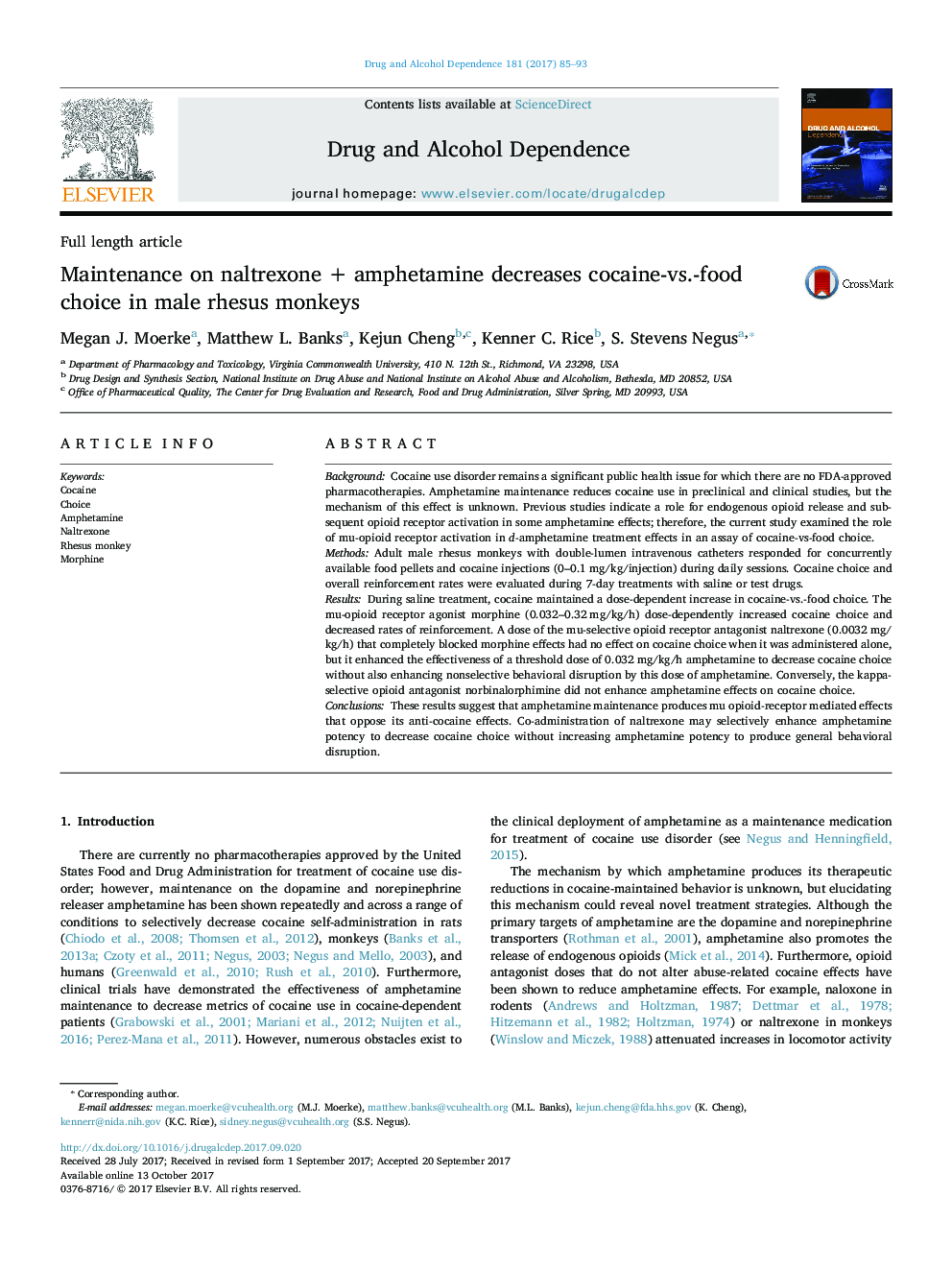| Article ID | Journal | Published Year | Pages | File Type |
|---|---|---|---|---|
| 5119909 | Drug and Alcohol Dependence | 2017 | 9 Pages |
â¢Morphine increased cocaine choice and decreased rates of reinforcement.â¢Naltrexone alone had no effect on cocaine choice.â¢Naltrexone enhanced the potency of amphetamine to reduce cocaine choice.
BackgroundCocaine use disorder remains a significant public health issue for which there are no FDA-approved pharmacotherapies. Amphetamine maintenance reduces cocaine use in preclinical and clinical studies, but the mechanism of this effect is unknown. Previous studies indicate a role for endogenous opioid release and subsequent opioid receptor activation in some amphetamine effects; therefore, the current study examined the role of mu-opioid receptor activation in d-amphetamine treatment effects in an assay of cocaine-vs-food choice.MethodsAdult male rhesus monkeys with double-lumen intravenous catheters responded for concurrently available food pellets and cocaine injections (0-0.1Â mg/kg/injection) during daily sessions. Cocaine choice and overall reinforcement rates were evaluated during 7-day treatments with saline or test drugs.ResultsDuring saline treatment, cocaine maintained a dose-dependent increase in cocaine-vs.-food choice. The mu-opioid receptor agonist morphine (0.032-0.32Â mg/kg/h) dose-dependently increased cocaine choice and decreased rates of reinforcement. A dose of the mu-selective opioid receptor antagonist naltrexone (0.0032Â mg/kg/h) that completely blocked morphine effects had no effect on cocaine choice when it was administered alone, but it enhanced the effectiveness of a threshold dose of 0.032Â mg/kg/h amphetamine to decrease cocaine choice without also enhancing nonselective behavioral disruption by this dose of amphetamine. Conversely, the kappa-selective opioid antagonist norbinalorphimine did not enhance amphetamine effects on cocaine choice.ConclusionsThese results suggest that amphetamine maintenance produces mu opioid-receptor mediated effects that oppose its anti-cocaine effects. Co-administration of naltrexone may selectively enhance amphetamine potency to decrease cocaine choice without increasing amphetamine potency to produce general behavioral disruption.
